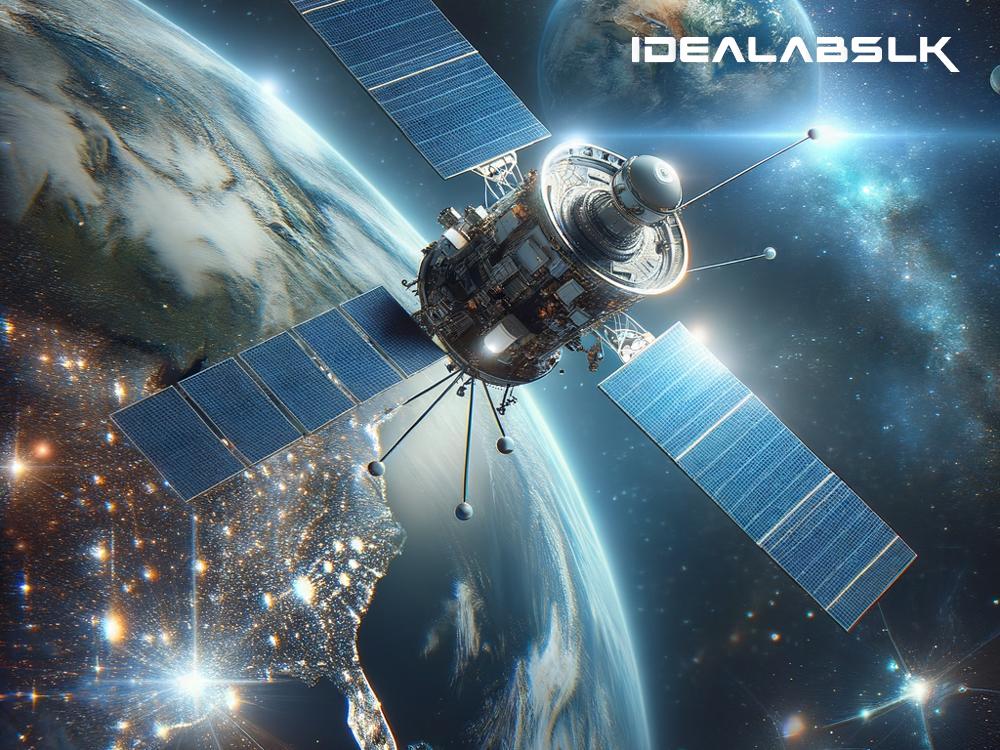How Space-Based Artificial Intelligence (AI) Will Revolutionize Space Exploration by 2025
In the vast, mysterious expanse of space, the final frontier is not just a place for astronauts and rockets; it's becoming a playground for something you might not expect: artificial intelligence (AI). By 2025, the development of space-based AI is set to change the way humans explore the cosmos, making it more efficient, safer, and much more exciting. Here's a simple breakdown of how this is going to happen.
First off, let's understand what we mean by space-based AI. Imagine having super-smart robots and computer programs up there in space, capable of thinking, learning, and making decisions. These aren't your average sci-fi movie robots; they're advanced systems equipped with the intelligence to handle complex tasks that would be difficult, dangerous, or downright impossible for humans.
So, why is 2025 a significant year? Well, it's not just a random date. The advancement of technology follows an exponential curve, meaning that progress speeds up over time. We're at a point where AI technology, which has been growing rapidly on Earth, is about to take a giant leap into outer space, changing the game entirely.
Making Space Exploration Safer
One of the most immediate impacts of space-based AI will be on the safety of astronauts. Space missions are fraught with dangers, from the moment of launch to landing and everything in between. AI systems will continually monitor the health of astronauts and the integrity of spacecraft, predicting potential issues before they become life-threatening. This isn't just about avoiding disasters; it's about creating a proactive approach to space travel that ensures everyone comes home safely.
Faster Communication
Currently, communicating between Earth and distant space missions can take hours. This delay makes real-time decision-making impossible, but AI can change that. By having intelligent systems on spacecraft and celestial bodies like the Moon or Mars, decisions can be made on the spot. Think of it as having an expert team on board that doesn't need to wait for instructions from Earth.
Autonomous Exploration
Perhaps the most exciting aspect of space-based AI is its potential for autonomous exploration. These AI systems can explore far-off planets, moons, and asteroids without direct human control. They can navigate treacherous terrains, analyze geological samples, and even search for signs of life. This not only speeds up the exploration process but also allows us to reach places that would be too risky for humans to go. By 2025, we could have AI scouts sending us incredible information from places we've only dreamed of visiting.
Efficient Operations
Running a space mission requires a staggering amount of resources and energy. Space-based AI can make these operations more efficient by optimizing routes, managing resources, and even conducting maintenance. This efficiency doesn't just save money; it extends the lifespan of missions, allowing for a deeper exploration of space.
Upgrading Space Habitats
Living in space for extended periods is a challenge. AI could transform space habitats into smart homes that automatically regulate life-support systems, manage waste, and even adapt to the psychological needs of astronauts. This makes long-term missions, such as living on Mars, a realistic goal.
Personal Assistants in Space
Imagine every astronaut having a personal AI assistant. These assistants can help with everything from scientific research to routine tasks, freeing up astronauts to focus on the most important aspects of their missions. This personalized support could significantly reduce the stress of space travel.
What Does This Mean for Us?
The impact of space-based AI extends beyond making space exploration cooler; it represents a new era of human achievement. By leveraging AI, we're not just exploring space; we're doing it in a way that's smarter, safer, and more inclusive. The advancements by 2025 will likely fuel the dreams of many more moonshots, pushing humanity to new heights.
As we look towards the sky, it's clear that the future of space exploration is not just about where we can go, but how we get there. Space-based AI is the key to unlocking this new chapter, and by 2025, we'll be well on our way to experiencing the untold wonders of the cosmos with these intelligent systems as our partners. This is not just science fiction; it's the future, and it's incredibly exciting.

